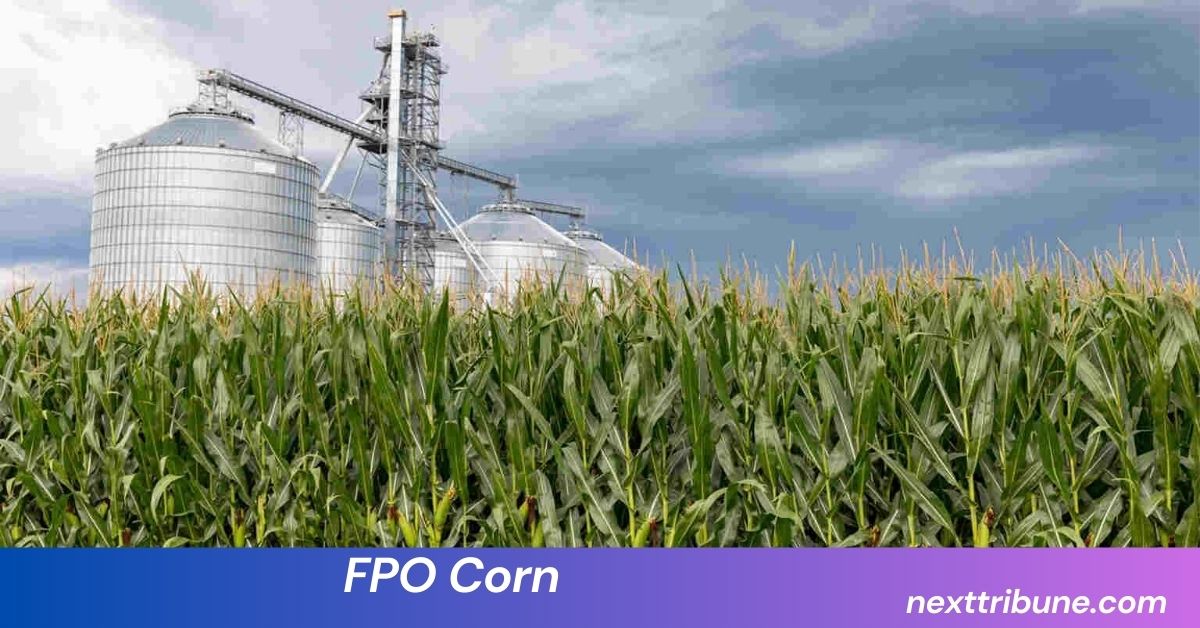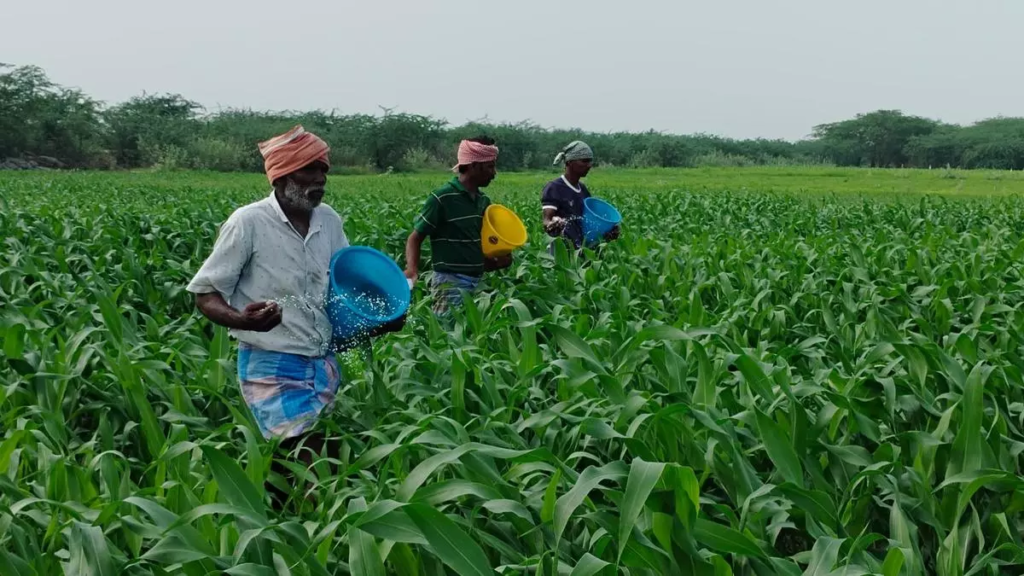
Corn, known as maize in many parts of the world, is a vital crop that serves as a staple food, animal feed, and a key ingredient in various industrial products. In the United States and France, corn plays a significant role in agriculture and the economy. To enhance corn production and improve the livelihoods of farmers, the concept of Farmer Producer Organizations (FPOs) has emerged as a transformative approach. This article delves into the concept of FPO corn, its benefits, challenges, and its impact on the agricultural landscape in the USA and France.
Understanding FPO Corn
An FPO, or Farmer Producer Organization, is a collective of farmers who come together to pool their resources, knowledge, and efforts to improve their agricultural practices and market access. When these organizations focus on corn production, they are referred to as FPO corn initiatives. The primary goal of an FPO is to empower small and marginal farmers by providing them with better access to resources, advanced technologies, and improved market opportunities.
FPOs operate on the principles of cooperation and collective decision-making. Instead of individual farmers struggling with high costs, low market prices, and limited technological access, FPOs enable them to work together for mutual benefit. These organizations also help in bridging the gap between farmers and governmental support programs, research institutions, and private sector investments.

Why FPO Corn is Important Today
FPO Corn is becoming more popular all over the world, especially in countries like India, Kenya, Nigeria, and parts of Southeast Asia. Why? Because many farmers face problems like low income, poor storage, lack of marketing skills, and no direct access to markets.
FPOs help fix these problems by:
- Giving training to farmers on best practices
- Helping them get good seeds and fertilizers at lower prices
- Finding better markets to sell their corn
- Supporting them with tools, storage, and transport
How FPO Corn is Grown
Growing FPO Corn begins with organization. Here’s how the process works:
- Farmer Registration: Farmers join the FPO.
- Seed Selection: The FPO chooses high-quality corn seeds suitable for the region.
- Input Purchase: Fertilizers, pesticides, and other inputs are bought in bulk.
- Training: Farmers receive training on modern, eco-friendly methods.
- Cultivation: Corn is planted using shared knowledge and sometimes shared machinery.
- Harvesting & Storage: The FPO helps coordinate harvesting and provides proper storage.
- Marketing & Sales: The final product is sold collectively to wholesalers or processors.
The Importance of FPO Corn in Agriculture
FPO corn initiatives are crucial for several reasons:
1. Economies of Scale
By pooling resources, farmers can purchase inputs like seeds, fertilizers, and machinery at bulk rates, reducing individual costs and increasing profitability. Large-scale procurement helps in reducing per-unit costs, making farming more affordable for small-scale farmers.
Also Read: Lajehgibutmaz: A Revolutionary Approach to Efficiency and Accuracy
2. Access to Technology
FPOs facilitate access to modern agricultural technologies and best practices, leading to improved crop yields and quality. They provide training programs, demonstrations, and knowledge-sharing platforms that educate farmers about the latest advancements in corn farming, such as precision agriculture, drought-resistant seed varieties, and better irrigation methods.
3. Market Access and Price Stability
Collectively, farmers have better bargaining power and can access larger markets, ensuring fair prices for their produce. FPOs often establish direct relationships with bulk buyers, food processing industries, and export markets, bypassing middlemen who often exploit individual farmers with lower prices.
4. Financial Support and Risk Mitigation
FPOs can provide members with access to credit, subsidies, and insurance, reducing financial risks associated with farming. Many banks and financial institutions prefer lending to organized groups rather than individual farmers, making credit more accessible.
FPO Corn in the United States
In the USA, the concept of FPOs aligns with cooperative farming models that have existed for decades. Some prominent organizations supporting corn farmers include:
Also Read: About Guf Hacxivchev6.8. Buying Points: A Complete Guide
National Corn Growers Association (NCGA)
NCGA represents thousands of corn farmers, advocating for their interests and providing resources to enhance productivity. The organization works on policies and regulations that benefit corn growers, promotes sustainable farming practices, and invests in research and market development. (ncga.com)
State-Level Associations
Organizations like the Texas Corn Producers and the Iowa Corn Growers Association play crucial roles in supporting farmers. These associations offer educational programs, research funding, and advocacy to ensure the profitability and sustainability of corn farming in their respective states. (texascorn.org, iowacorn.org)
The USA’s large-scale farming practices benefit significantly from cooperative efforts, ensuring a steady supply of high-quality corn for both domestic consumption and export.
FPO Corn in France
France has a strong tradition of agricultural cooperatives that align closely with FPO principles. Corn production in France is an essential part of its agricultural economy, supporting both food industries and biofuel production.
Agricultural Cooperatives
French cooperatives enable farmers to collaborate on production, processing, and marketing of their products, including corn. These cooperatives help members secure fair prices, access advanced farming technologies, and ensure sustainable farming practices.
Euralis Cooperative Group
One of the largest agricultural cooperatives in France, Euralis supports corn farmers by providing access to research, technology, and markets. Their programs focus on high-yield seed varieties, sustainable farming techniques, and global market expansion.
Also Read: Dozmixsiw154: The Future of Smart Hybrid Systems
Benefits of FPO Corn
The implementation of FPO corn initiatives offers numerous advantages:
- Cost Reduction – Collective purchasing leads to lower costs per farmer.
- Improved Quality – Access to better seeds and farming practices enhances crop quality.
- Knowledge Sharing – Farmers exchange best practices and innovative techniques.
- Risk Mitigation – Shared resources help manage financial and environmental risks.
FPO Corn vs Traditional Corn Farming
| Feature | FPO Corn | Traditional Corn Farming |
|---|---|---|
| Farming Method | Group-based | Individual-based |
| Market Access | Direct to buyers | Through middlemen |
| Profits | Higher | Lower |
| Technology Use | Shared modern tools | Limited tools |
| Knowledge Exchange | Regular training and meetings | Individual experience only |
Challenges in FPO Corn Farming
Despite its many advantages, FPO Corn also faces some problems:
- Lack of Awareness: Many farmers don’t know about FPOs.
- Limited Funds: Some FPOs struggle with finance.
- Weak Management: Not all groups have strong leadership.
- Market Fluctuations: Prices of corn can change suddenly.
Solutions to Improve FPO Corn Systems
- Awareness Campaigns: Educate farmers about the FPO model.
- Government Support: More subsidies and easier loans.
- Training Leaders: Develop strong leadership in each FPO.
- Digital Tools: Use mobile apps and data tools for pricing and logistics.
Technology and FPO Corn
Technology is playing a big role in improving FPO Corn farming. Mobile apps help farmers get weather updates, best practices, and market prices. GPS and drone technology are being used to monitor crops. AI-based tools help forecast yield and disease risks. All these tools are shared across the FPO, which makes them affordable and accessible.
Sustainability and FPO Corn
FPO Corn is more sustainable than traditional farming:
- Eco-Friendly Practices: FPOs train farmers on organic and sustainable farming.
- Resource Sharing: Less waste due to shared machinery and planning.
- Crop Rotation: Encouraged to maintain soil health.
Challenges Facing FPO Corn Initiatives
Despite the benefits, FPO corn initiatives face several challenges:
1. Organizational Management
Effective leadership and administration are crucial for the success of FPOs. Without proper governance structures, inefficiencies and internal conflicts may arise.
2. Access to Capital
Funding is necessary for technology adoption and infrastructure development, but many FPOs struggle to secure adequate financial support.
3. Market Competition
Competing with large agribusinesses requires strategic planning and strong market linkages, which FPOs may find difficult to establish.
4. Regulatory Hurdles
Navigating complex policies can be a challenge for FPOs, especially when expanding operations or entering international markets.
Future Prospects of FPO Corn
The future of FPO corn looks promising, with trends indicating growth in:
- Digitalization – The use of AI, blockchain, and IoT to optimize farming operations.
- Sustainable Practices – Promoting eco-friendly farming to combat climate change.
- Policy Support – Increasing governmental backing for FPO initiatives.
- Global Collaboration – Networking with international markets and research bodies.
Frequently Asked Questions (FAQs)
What is FPO corn?
FPO corn refers to Farmer Producer Organizations that focus on corn production, helping farmers access better resources, technology, and market opportunities.
How do FPOs benefit corn farmers?
FPOs help farmers by reducing costs, improving crop quality, increasing market access, and providing financial and risk management support.
What are the challenges of FPO corn initiatives?
Challenges include organizational management, funding difficulties, market competition, and regulatory complexities.
How does FPO corn impact sustainability?
By promoting eco-friendly farming techniques, FPOs help in conserving resources, reducing chemical use, and improving soil health.
Conclusion
FPO corn initiatives hold great potential for transforming agriculture by empowering farmers and improving productivity. As the world moves toward more sustainable and inclusive farming practices, strengthening FPOs will be crucial in ensuring food security and economic stability for farmers in the USA, France, and beyond.



